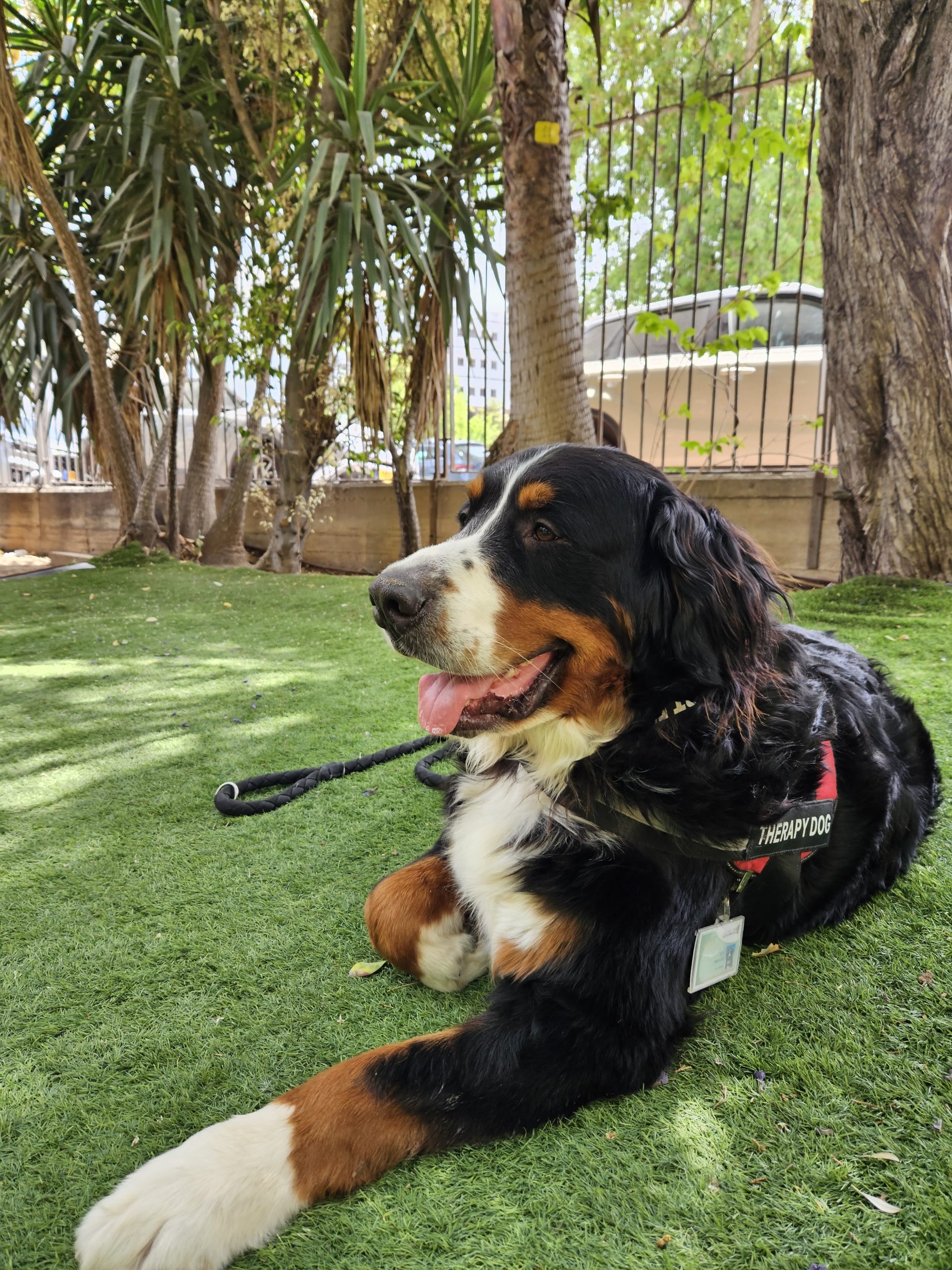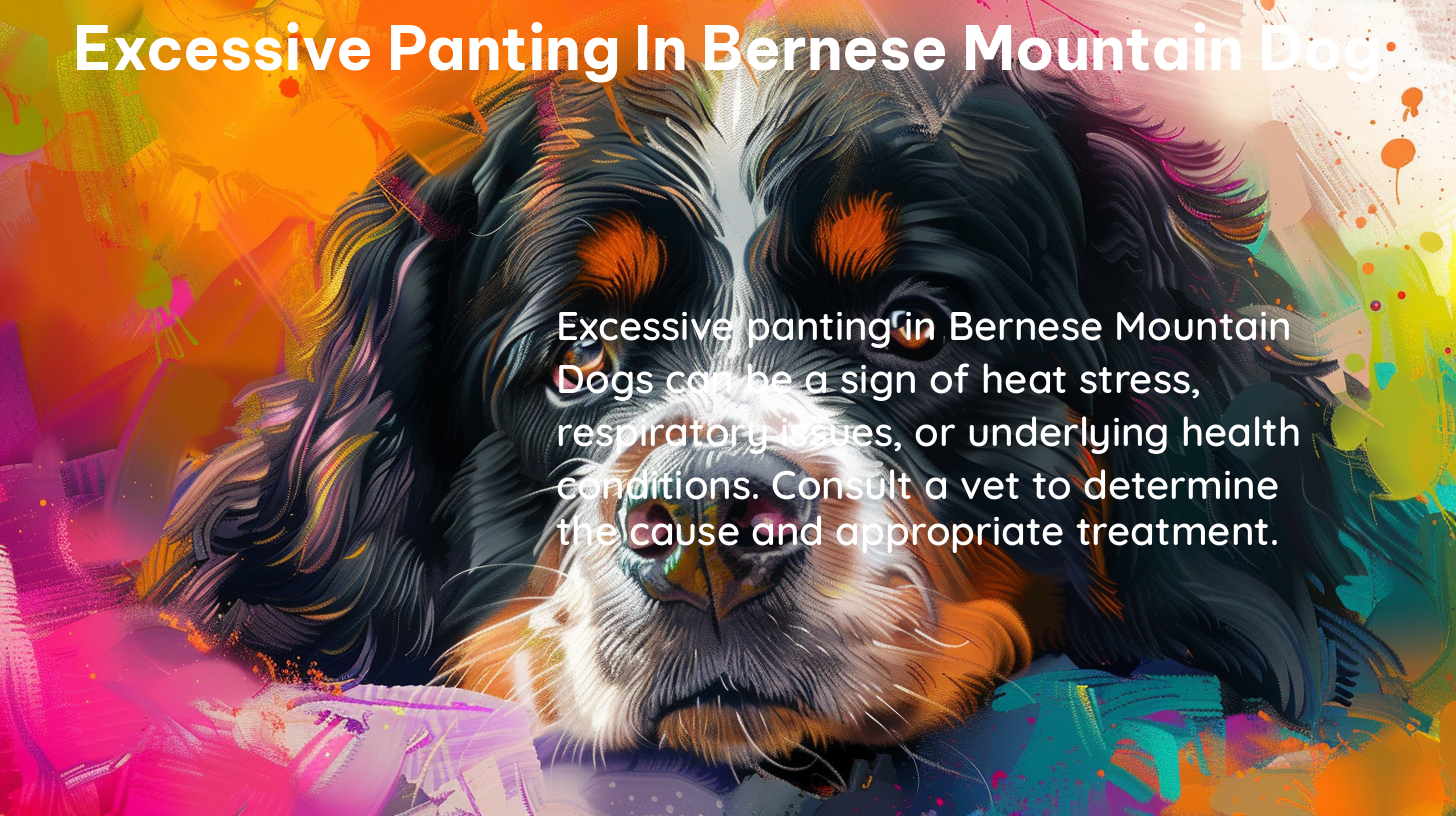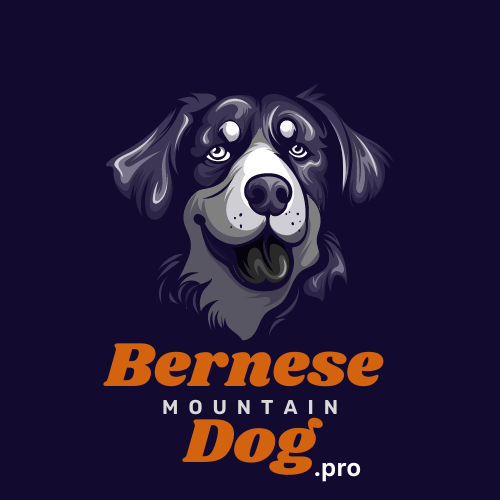Excessive panting in Bernese Mountain Dogs can be a concerning issue, as it can indicate various underlying health problems. As a large, thick-coated breed, Bernese Mountain Dogs are particularly susceptible to panting as a way to regulate their body temperature. Understanding the causes, common triggers, and effective management strategies is crucial for the well-being of these beloved canine companions.
Causes of Excessive Panting in Bernese Mountain Dogs

-
Heat and Humidity: Bernese Mountain Dogs, with their thick coats, can struggle to cool down in hot and humid environments. Panting is their primary mechanism for regulating body temperature, and they may pant excessively in these conditions.
-
Exercise and Play: Dogs, especially puppies, may pant after engaging in vigorous exercise or play due to the increased energy expenditure.
-
Anxiety and Stress: Panting can be a sign of anxiety or stress in dogs, which can be triggered by various factors such as loud noises, changes in their environment, or other stressful situations.
-
Pain and Discomfort: Underlying medical conditions, such as arthritis, hip dysplasia, or other bone and joint issues, can cause pain and discomfort, leading to excessive panting.
-
Medical Conditions: Certain health problems, including heart or lung diseases, Cushing’s disease, and other conditions, can contribute to excessive panting in Bernese Mountain Dogs.
Managing Excessive Panting in Bernese Mountain Dogs

-
Provide Adequate Cooling: Ensure your Bernese Mountain Dog has access to cool, well-ventilated areas, especially during hot weather. Consider using air conditioning or fans to help regulate their body temperature.
-
Monitor Exercise: Avoid subjecting your Bernese Mountain Dog to excessive exercise, particularly in hot or humid conditions. Provide regular breaks for rest and hydration.
-
Reduce Stress: Identify and manage any potential stress triggers, such as loud noises or changes in the environment, to help minimize anxiety-induced panting.
-
Regular Veterinary Check-Ups: Schedule regular veterinary check-ups to identify and address any underlying medical conditions that may be contributing to your Bernese Mountain Dog’s excessive panting.
-
Maintain a Healthy Weight: Ensure your Bernese Mountain Dog is at a healthy weight, as being overweight can increase the energy required for movement and contribute to excessive panting.
Common Triggers for Panting in Bernese Mountain Dogs
-
Hot Weather: High temperatures and humidity can cause Bernese Mountain Dogs to pant excessively as they struggle to regulate their body temperature.
-
Vigorous Exercise: Engaging in strenuous physical activity, such as prolonged playtime or intense exercise, can lead to panting in Bernese Mountain Dogs.
-
Anxiety and Stress: Loud noises, changes in the environment, or other stressful situations can trigger anxiety-induced panting in Bernese Mountain Dogs.
-
Pain and Discomfort: Underlying medical conditions, such as arthritis or hip dysplasia, can cause pain and discomfort, leading to excessive panting.
Conclusion
Excessive panting in Bernese Mountain Dogs can be a complex issue, with various potential causes and triggers. By understanding the factors that contribute to this behavior, pet owners can take proactive steps to manage and address the problem. Providing a comfortable, stress-free environment, monitoring exercise, and seeking regular veterinary care are all essential in ensuring the well-being of these beloved canine companions.

Sarah Johnson
Sarah Johnson is a devoted Bernese Mountain Dog enthusiast and regular contributor to Bernese Mountain Dog Pro. With over a decade of experience in raising and training Berners, Sarah brings practical knowledge and passion to her writing. Sarah lives in Colorado with her two Berners, Max and Bella.